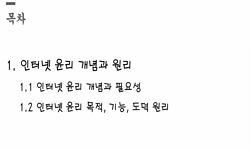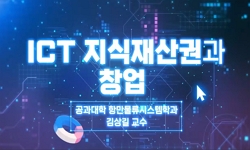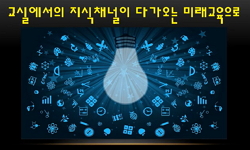This study, 'A study on the development and implementation of korean model of economic education for the era for Globalization and knowledge-Based Economy' has been pursued for three years(2003. 09-2006. 08). The purpose of this study was to explore a...
http://chineseinput.net/에서 pinyin(병음)방식으로 중국어를 변환할 수 있습니다.
변환된 중국어를 복사하여 사용하시면 됩니다.
- 中文 을 입력하시려면 zhongwen을 입력하시고 space를누르시면됩니다.
- 北京 을 입력하시려면 beijing을 입력하시고 space를 누르시면 됩니다.
세계화와 지식 기반 경제 시대를 위한 학교 경제 교육의 체계화 및 현장 적용에 관한 연구
한글로보기https://www.riss.kr/link?id=G3735137
- 저자
-
발행기관
-
-
발행연도
2007년
-
작성언어
Korean
-
주제어
세계화 ; 정보화 ; 지식기반경제사회 ; 경제교육 ; 경영교육 ; 직업교육 ; 기업교육 ; 시민성 ; 경제교육 모형 ; 경제교육 목표 ; 시장 경제 인식과 의식 ; 경제 개념 ; 경제 원리 ; 경제 행위 ; 시장 경제 ; 경제 교육과정 ; 교수-학습 방법 ; 문제해결학습 ; 신 문제해결학습 ; 탐구학습 ; 의사결정 모형 ; 경제실험 모형 ; 교수-학습 모형 ; 경제 원리 ; 사회과 교육 ; 교사교육 ; 경제 의식 ; 경제적 소양 ; 경제관련 기관 ; 교사 자율연구 모임 ; 글로벌 시민성 ; 공공경제 ; 내용 조직 ; 내용 선정 ; 사회적 역할 ; 사고력 ; 지식 ; 기능 ; 가치⋅ ; 태도 ; 참여 ; 경제교육 표준안 ; 내용 요소 ; 델파이 기법 ; 내용 체계 ; 내용 표준 ; 스트랜드 ; 성취기준 ; 내용기준 ; 평가 방법 ; 평가 문항 ; 평가 도구 ; 수행평가 ; 소비자 ; 저축자 ; 노동자 ; 기업가 ; 시민 ; 국제 무역 ; 제7차 교육과정 ; 경제관련 교과서 ; 경제교육협의회 ; 거시적 접근 ; 미시적 접근 ; 경제 윤리 ; 노동시장 ; 노동 문제 ; 인터넷 ; ICT ; e-러닝 ; 데이터베이스
-
자료형태
한국연구재단(NRF)
-
0
상세조회 -
0
다운로드
부가정보
다국어 초록 (Multilingual Abstract)
The first-year study was a pilot research toward achieving the final purpose of this study. It aimed to provide a basic frame of reference to develop a new economic education at schools, which helped promote historical understanding of the changes for the economic education at schools as well as helped deduce educational implication in the knowledge-based economic era through international comparison.
The second-year study was a research on the development of curriculum in accordance with the korean model of economic education developed in the first-year study. It attempted to develop economic education curriculum together with teaching-learning method, both of which are required by the new era.
The third-year study was a series of studies required to complete the development of the economic education model in the era of knowledge-based economy. It attempted to make teaching-learning method to specify economic education curriculum together with criteria for evaluation, and to apply them to educational fields. In addition, it aimed at constructing data base consisting of the three-year project findings.
What follows are a summary of the meaning of the study, method of utilization, and implications of the study.
First, this study is meaningful in that it was not a episodic, theoretical research but a grand, systemized one combining the principles, objectives, contents, teaching-learning methods, and assessment methods at the same time.
Second, our research results including the korean model of economic education and curriculum go further than putting merely together existing research results. It provides a frame of reference to evaluate current curriculum and classroom teaching, combing real-world teachers' demand, experiments, delphi method, expert consultation, and what not.
Third, our research results can be used to better economic education contents, establish new curriculum, provide basic data for teaching-learning materials including textbooks, and guide teaching-learning method and evaluation. In addition, it can be utilized as a fundamental data for a revision of the next economic education curriculum for elementary, middle, and high schools.
Fourth, this study went further than merely suggesting cases and evaluation questionnaires, and applied them to classroom situation. As such, the fact that this study applied the teaching syllabi and evaluation questionnaires and recommended ideas for improvement can be an asset in the process to better economic education at schools.
Finally, this study recorded all the results into CDs and supplied them on the web, providing data for future research. Therefore, all the related people including teachers at schools, economic researchers, social studies theorists, economists, and curriculum developers are now able to easily access useful data.
This study, 'A study on the development and implementation of korean model of economic education for the era for Globalization and knowledge-Based Economy' has been pursued for three years(2003. 09-2006. 08). The purpose of this study was to explore a new korean model of economic education, content standards, teaching-learning method, and assessment and to apply them to the classroom. The study contents are as follows.
The first-year study was a pilot research toward achieving the final purpose of this study. It aimed to provide a basic frame of reference to develop a new economic education at schools, which helped promote historical understanding of the changes for the economic education at schools as well as helped deduce educational implication in the knowledge-based economic era through international comparison.
The second-year study was a research on the development of curriculum in accordance with the korean model of economic education developed in the first-year study. It attempted to develop economic education curriculum together with teaching-learning method, both of which are required by the new era.
The third-year study was a series of studies required to complete the development of the economic education model in the era of knowledge-based economy. It attempted to make teaching-learning method to specify economic education curriculum together with criteria for evaluation, and to apply them to educational fields. In addition, it aimed at constructing data base consisting of the three-year project findings.
What follows are a summary of the meaning of the study, method of utilization, and implications of the study.
First, this study is meaningful in that it was not a episodic, theoretical research but a grand, systemized one combining the principles, objectives, contents, teaching-learning methods, and assessment methods at the same time.
Second, our research results including the korean model of economic education and curriculum go further than putting merely together existing research results. It provides a frame of reference to evaluate current curriculum and classroom teaching, combing real-world teachers' demand, experiments, delphi method, expert consultation, and what not.
Third, our research results can be used to better economic education contents, establish new curriculum, provide basic data for teaching-learning materials including textbooks, and guide teaching-learning method and evaluation. In addition, it can be utilized as a fundamental data for a revision of the next economic education curriculum for elementary, middle, and high schools.
Fourth, this study went further than merely suggesting cases and evaluation questionnaires, and applied them to classroom situation. As such, the fact that this study applied the teaching syllabi and evaluation questionnaires and recommended ideas for improvement can be an asset in the process to better economic education at schools.
Finally, this study recorded all the results into CDs and supplied them on the web, providing data for future research. Therefore, all the related people including teachers at schools, economic researchers, social studies theorists, economists, and curriculum developers are now able to easily access useful data.
국문 초록 (Abstract)
1차년도 연구는 이런 최종 목표를 성취하기 위한 기초 연구의 성격을 갖으며, 새로운 학교경제교육 모형을 개발하기 위한 이론연구와 다양한 조사 연구 및 국제비교 연구를 바탕으로 기초적인 준거의 틀을 마련하였다. 2차년도 연구에서는, 1차년도 연구 결과를 바탕으로 지식 경제시대를 위한 경제교육모형을 정립하는데 요구되는 학교 경제교육과정과 내용 체계안을 개발하였다. 그리고 3차년도 연구에서는 ‘학교 경제교육을 위한 표준적 수업 사례의 개발’, ‘경제 교육을 위한 데이터베이스 구축과 활용 방안’, ‘학교 경제교육의 표준 성취도 평가 문항 개발 연구’라는 세 가지 주제를 통해 학교 경제 교육과정을 구체화하기 위한 교수․학습 방법의 표준을 개발하고 이를 현장에 적용하였다. 이상의 연구 과정을 통해 진행되어 온 본 연구가 학교 경제교육에 주는 의의 및 시사점은 다음과 같다.
첫째, 본 연구는 학교 경제교육이 세계화 및 지식기반경제시대를 맞이하여 어느 방향으로 나아가야 하며 이를 위해 어떤 모형으로 정립되어야 하는지에 대한 단순한 이론적 고찰이 아닌 학교 경제교육모형의 구체화를 시도하였다는 점에서 매우 실천적인 접근을 띠고 있다고 볼 수 있다. 즉, 이론적 연구 결과에 토대를 둔 새로운 학교 경제교육과정을 제시하였을 뿐 아니라 이의 구체적인 실현을 위하여 교수․학습 방법의 표준사례를 제시하고 이를 현장에 적용하여, 본 연구에서 제시한 여러 대안적 교수․학습 사례들이 어느 정도의 효율성을 갖는지, 교실 현장에서 어느 정도 실천될 가능성이 있는지에 대한 다양한 기초 자료를 제시하였다. 마찬가지로 평가 영역에 있어서도 경제교육평가에 대한 광범위한 이론적 고찰을 통해 실제 수업에서 활용될 수 있는 예시 평가 문항을 개발하였으며, 또한 이들 문항에 대한 현장 적용 및 전문가 델파이 조사를 통해 본 연구에서 개발한 평가 문항의 제한점 및 개선점을 제시하였다.
둘째, 본 연구에서 제안하고 있는 학교 경제교육모형은 경제교육에 대한 기존의 연구 결과나 혹은 국제 연구 결과들을 단순 정리하는 차원에서 정립된 것이 아니라 이론적 연구 결과 및 다양한 연구 방법을 활용하여 본 연구진에서 새롭게 정립한 것이다. 즉, 전문가 델파이 조사 등의 다양한 실천적 연구를 통해 기존의 연구들과는 다른 새로운 시각에서 학교 경제교육에 접근하고자 하였다. 이러한 노력의 결과 본 연구에서는 현재의 제7차 경제교육과정과 구분되는 학교 경제교육내용 기준안을 마련하였으며, 이를 바탕으로 경제교육평가를 위한 성취기준 및 예시 평가 문항을 제시하였다. 기존 연구와는 구별되는 본 연구의 이러한 연구 결과는 현행 교육과정과 교실 수업의 반성 및 평가를 위한 준거를 제공해 줄 수 있다는 장점을 갖는다.
셋째, 본 연구에서는 학교 경제교육모형에 기초한 수업사례안 및 평가 문항을 제시하는 것에서 한 걸음 더 나아가 이에 대한 현장 적용을 실시하였다. 즉 현장 적용을 통해 본 연구에서 개발한 수업사례안 및 평가 문항의 효과와 문제점을 지적하고 이를 토대로 몇 가지 개선 방향을 제시하고자 하였다.
넷째, 본 연구는 3년
총 3개년(2003.9.1-2006.8.31) 계획으로 수행된 본 연구의 최종 목표는 세계화와 지식기반경제사회에서 요청되는 새로운 학교 경제교육 모형과 내용체계를 개발하고, 이를 현장에 적용시켜 보는 ...
총 3개년(2003.9.1-2006.8.31) 계획으로 수행된 본 연구의 최종 목표는 세계화와 지식기반경제사회에서 요청되는 새로운 학교 경제교육 모형과 내용체계를 개발하고, 이를 현장에 적용시켜 보는 것이었다.
1차년도 연구는 이런 최종 목표를 성취하기 위한 기초 연구의 성격을 갖으며, 새로운 학교경제교육 모형을 개발하기 위한 이론연구와 다양한 조사 연구 및 국제비교 연구를 바탕으로 기초적인 준거의 틀을 마련하였다. 2차년도 연구에서는, 1차년도 연구 결과를 바탕으로 지식 경제시대를 위한 경제교육모형을 정립하는데 요구되는 학교 경제교육과정과 내용 체계안을 개발하였다. 그리고 3차년도 연구에서는 ‘학교 경제교육을 위한 표준적 수업 사례의 개발’, ‘경제 교육을 위한 데이터베이스 구축과 활용 방안’, ‘학교 경제교육의 표준 성취도 평가 문항 개발 연구’라는 세 가지 주제를 통해 학교 경제 교육과정을 구체화하기 위한 교수․학습 방법의 표준을 개발하고 이를 현장에 적용하였다. 이상의 연구 과정을 통해 진행되어 온 본 연구가 학교 경제교육에 주는 의의 및 시사점은 다음과 같다.
첫째, 본 연구는 학교 경제교육이 세계화 및 지식기반경제시대를 맞이하여 어느 방향으로 나아가야 하며 이를 위해 어떤 모형으로 정립되어야 하는지에 대한 단순한 이론적 고찰이 아닌 학교 경제교육모형의 구체화를 시도하였다는 점에서 매우 실천적인 접근을 띠고 있다고 볼 수 있다. 즉, 이론적 연구 결과에 토대를 둔 새로운 학교 경제교육과정을 제시하였을 뿐 아니라 이의 구체적인 실현을 위하여 교수․학습 방법의 표준사례를 제시하고 이를 현장에 적용하여, 본 연구에서 제시한 여러 대안적 교수․학습 사례들이 어느 정도의 효율성을 갖는지, 교실 현장에서 어느 정도 실천될 가능성이 있는지에 대한 다양한 기초 자료를 제시하였다. 마찬가지로 평가 영역에 있어서도 경제교육평가에 대한 광범위한 이론적 고찰을 통해 실제 수업에서 활용될 수 있는 예시 평가 문항을 개발하였으며, 또한 이들 문항에 대한 현장 적용 및 전문가 델파이 조사를 통해 본 연구에서 개발한 평가 문항의 제한점 및 개선점을 제시하였다.
둘째, 본 연구에서 제안하고 있는 학교 경제교육모형은 경제교육에 대한 기존의 연구 결과나 혹은 국제 연구 결과들을 단순 정리하는 차원에서 정립된 것이 아니라 이론적 연구 결과 및 다양한 연구 방법을 활용하여 본 연구진에서 새롭게 정립한 것이다. 즉, 전문가 델파이 조사 등의 다양한 실천적 연구를 통해 기존의 연구들과는 다른 새로운 시각에서 학교 경제교육에 접근하고자 하였다. 이러한 노력의 결과 본 연구에서는 현재의 제7차 경제교육과정과 구분되는 학교 경제교육내용 기준안을 마련하였으며, 이를 바탕으로 경제교육평가를 위한 성취기준 및 예시 평가 문항을 제시하였다. 기존 연구와는 구별되는 본 연구의 이러한 연구 결과는 현행 교육과정과 교실 수업의 반성 및 평가를 위한 준거를 제공해 줄 수 있다는 장점을 갖는다.
셋째, 본 연구에서는 학교 경제교육모형에 기초한 수업사례안 및 평가 문항을 제시하는 것에서 한 걸음 더 나아가 이에 대한 현장 적용을 실시하였다. 즉 현장 적용을 통해 본 연구에서 개발한 수업사례안 및 평가 문항의 효과와 문제점을 지적하고 이를 토대로 몇 가지 개선 방향을 제시하고자 하였다.
넷째, 본 연구는 3년











